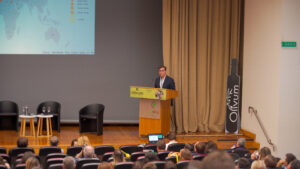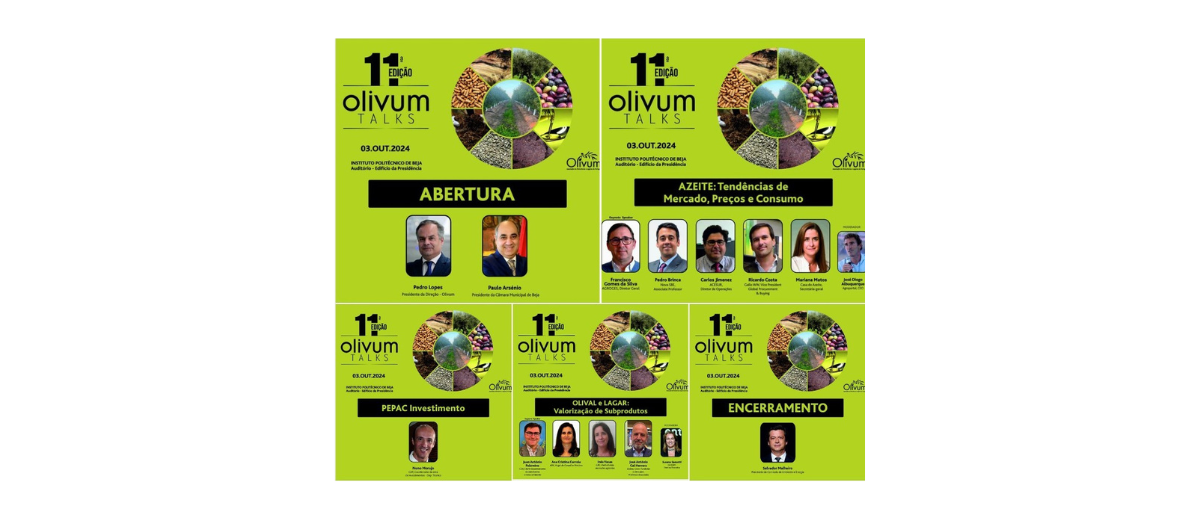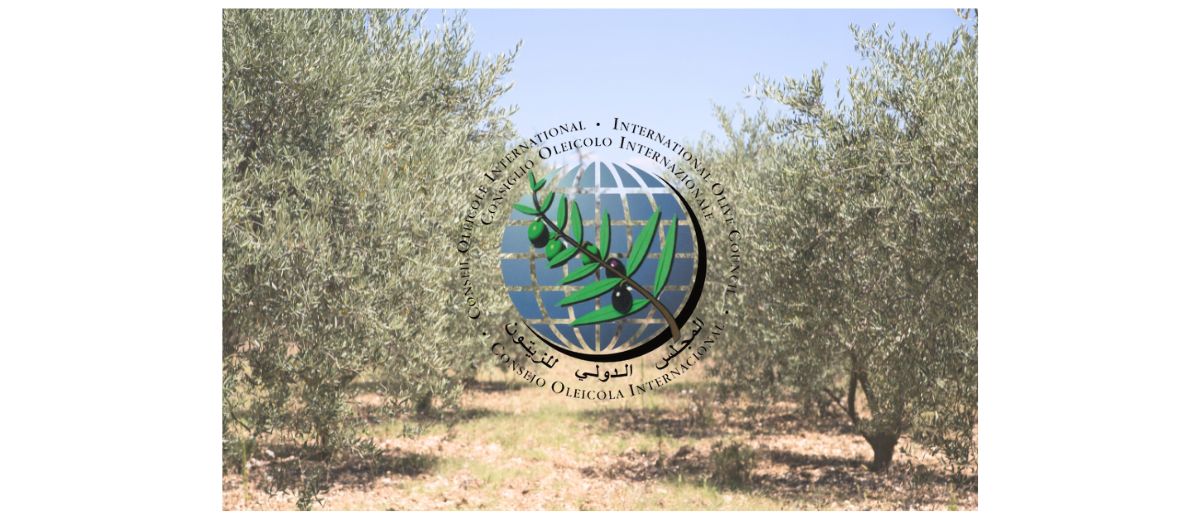The IOC confirms its commitment to more sustainable practices in olive oil production
On 3 October 2024, the Polytechnic Institute of Beja (Alentejo, Portugal) hosted the OLIVUM TALKS event organised by Olivum, a Portuguese association of olive growers and olive oil producers. The event brought together more than 250 participants, including producers, oil mill managers, public institutions and research centres, to discuss the challenges and opportunities facing the olive oil sector.
Over the course of the day, national and international experts analysed market trends, the future of the sector in Portugal and the use of by-products from olive groves and oil mills. At a round table discussion moderated by the association’s Executive Director, Susana Sassetti, sustainable alternatives for using these by-products were presented, and the importance of managing them to ensure the sector’s growth was highlighted.
The International Olive Council (IOC) was represented at the event by Juan Antonio Polo Palomino, Head of the IOC’s Olive Oil Production and Environment Department, who outlined his vision of a circular economy for the sector and stressed the importance of valorising the by-products of olive oil production.
The IOC official pointed out that the Organisation’s objective was to encourage more sustainable use of resources in order to minimise waste and maximise environmental and economic benefits. He said that the olive oil industry was a perfect example of how the circular economy could be applied effectively. “All by-products generated along the value chain, from the olive grove to the oil mill, have potential for use and recovery. The real challenge is to make these solutions technically and economically viable,” he concluded.
 Several agronomic applications offer viable solutions for managing these by-products, including compost, which can be used as an organic soil improver, and olive mill wastewater, which can be an excellent complement to fertirrigation. Incorporating organic matter from olive pruning and weeding residues into the soil also helps to improve soil health. Biochar, could also be very useful for retaining nutrients and improving the soil. Another fundamental aspect that must not be overlooked in efforts to increase production is the management of pomace and by-products. Each kilogram of oil produced results in an increased capacity to manage four kilograms of pomace. is therefore essential to find effective ways of managing and adding value to these by-products to ensure sustainable growth in the sector.
Several agronomic applications offer viable solutions for managing these by-products, including compost, which can be used as an organic soil improver, and olive mill wastewater, which can be an excellent complement to fertirrigation. Incorporating organic matter from olive pruning and weeding residues into the soil also helps to improve soil health. Biochar, could also be very useful for retaining nutrients and improving the soil. Another fundamental aspect that must not be overlooked in efforts to increase production is the management of pomace and by-products. Each kilogram of oil produced results in an increased capacity to manage four kilograms of pomace. is therefore essential to find effective ways of managing and adding value to these by-products to ensure sustainable growth in the sector.
Finally, the use of by-products for energy purposes, such as the production of bioethanol and biogas, is seen as one of the most promising long-term solutions, as it not only reduces waste but also contributes to the transition to cleaner, more sustainable energy sources.
The event strengthened the dialogue between key Portuguese sector stakeholders and confirmed the IOC’s commitment to more sustainable practices in olive oil production.
For more information, visit the official website of Olivum.










